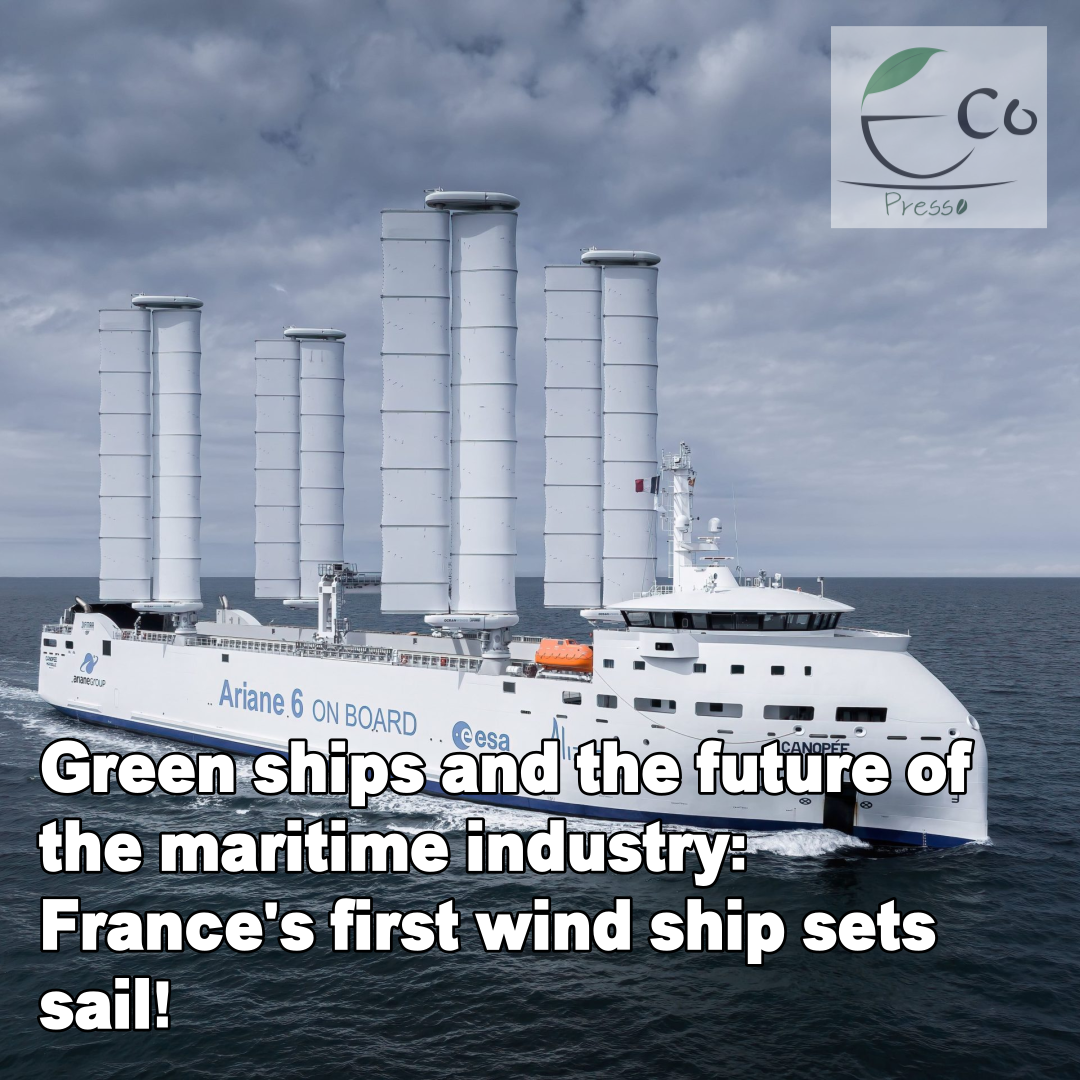Green ships and the future of the maritime industry 1: France’s first wind ship sets sail!

The significance of environmentally friendly vessels (Green ships) cannot be overstated.
The climate crisis has prompted the requirement for ships that are decarbonized. The maritime sector is acknowledged as one of the principal contributors to environmental degradation, and remedial measures are urgently required. Eco-friendly ships are gaining attention as one such solution. The objective is to discover methods for improving the effectiveness of vessels without putting undue strain on the environment.
The first French wind-powered cargo ship, Canopée!
This is the beginning of the commercial phase. The company acquired possession of the vessel in December 2022 and has been operating it between Europe and Guiana without the mast that was added during the summer. On Sunday, it will embark on its maiden voyage to Bremen, Rotterdam, and on to Guyana, where it is expected to arrive in early November.
– Jean-Michel Berud, Chairman of Jifmar offshore
This ship will pave the way for carbon-free transportation in the future
– Christophe Caralf, Head of Supply Chain, ArianeGroup
What is the impact of climate change on the shipping industry?
The climate crisis is a problem related to global warming, which is caused by an increase in the concentration of carbon dioxide in the atmosphere. The shipping industry is one of the most fuel-consuming industries and produces a lot of carbon dioxide emissions. Therefore, the problem of environmental pollution in the shipping industry is closely related to the climate crisis. That’s why the introduction of eco-friendly ships is essential for the shipping industry to respond to the climate crisis. Decarbonized ships and the future of the shipping industry
Decarbonizing ships is an important strategy for the future of the shipping industry.
Eco-friendly ships that do not use conventional fuels can help protect the environment and reduce fuel costs. They are also recognized as an essential element of compliance with international environmental regulations. As a result, the global maritime sector is swiftly preparing for environmental sustainability by introducing and utilizing carbon-neutral vessels.





